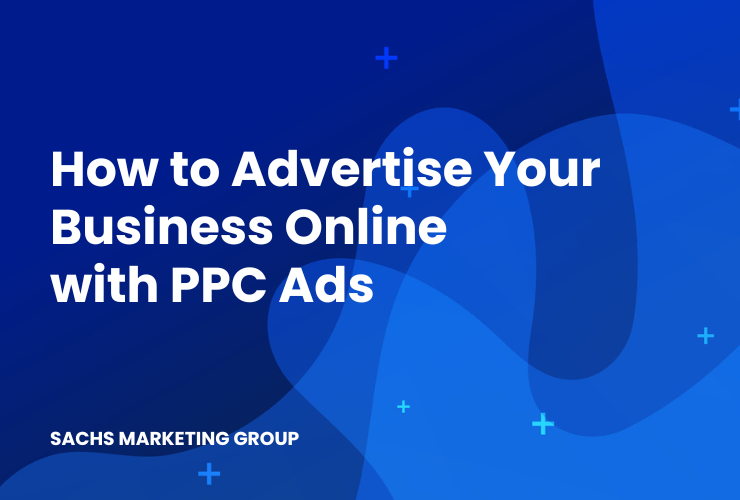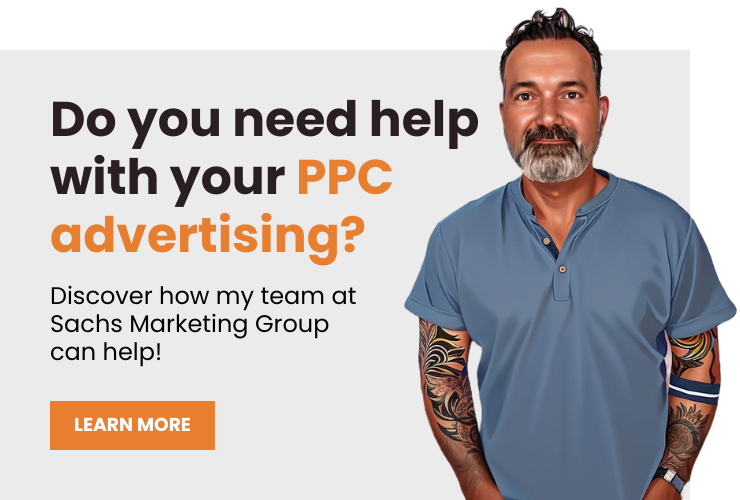Understanding how to advertise your business online with PPC (Pay-Per-Click) ads can help you outperform your competition. PPC advertising allows you to display ads on various digital platforms, paying only when a user clicks on your ad. It’s a targeted, cost-effective method to increase visibility and attract potential customers.
Are you looking to boost your online presence and drive more traffic to your business?
PPC (Pay-Per-Click) ads offer a unique opportunity to reach your target audience efficiently and cost-effectively. From heightened visibility to increased conversion rates, PPC ads are a game-changer in digital marketing.
In this article, we explore how to advertise your business online effectively with PPC ads.
Overview
What are PPC Ads?
PPC ads, or Pay-Per-Click ads, are a digital advertising model where businesses pay a fee each time their ad is clicked.
They’re used to drive traffic to websites, offering immediate visibility and targeted reach. Commonly appearing on search engines and social media platforms, PPC ads effectively reach potential customers actively searching for related products or services.
In my experience, PPC ads are like the fast track to getting your business noticed online. They maximize your visibility by appearing more prominently than organic results and do not require years of time and effort. In other words, PPC ads immediately allow you to leap-frog the top organic results.
The key is to make each click count, which means creating ads that attract clicks and target the right audience with the right intent.
Pro tip: Running a PPC ad campaign in combination with an SEO campaign can help drive signals that help your website build the momentum needed to climb the ranks organically.
How to Advertise Your Business Online with PPC Ads
Advertising your business online using PPC ad campaigns can significantly enhance your brand’s visibility across various digital platforms.
By strategically placing your ads where your target audience frequents, you can attract more traffic, generate leads, and increase sales. PPC campaigns offer the flexibility to adjust your strategy based on performance and audience insights.
Here’s how to advertise your business online with PPC ads and maximize visibility.
1. Selecting Your PPC Ad Platform
Choosing the right PPC ad platform can feel like navigating a maze. After using various PPC platforms over the years, I’ve learned that each platform has its strengths.
Google Ads was my go-to for reaching people actively searching Google for information. On the other hand, Facebook Ads and Instagram Ads allowed me to tap into detailed demographic and interest-based targeting.
The trick is in knowing where your audience hangs out.
For example, LinkedIn Ads can be a goldmine for B2B campaigns or companies interested in reaching professionals. Instagram is great for product advertising. TikTok Ads may be the new kid on the block, but it’s the fastest-growing social network ever and attracts a ton of attention from younger audiences, who often use it instead of traditional search engines.
Want to learn more about each platform? Check out some of these related articles:
- How to Advertise Your Business On Google
- How to Use Google Ads for Ecommerce (10 Steps)
- 10 Facebook Advertising Tips for Small Businesses
- How to Run Facebook Ads for Ecommerce
- How to Use LinkedIn for B2B Marketing
- How to Promote Your Business on Instagram
- How to Use Tiktok for Your Business
Remember, it’s not just about choosing one platform – sometimes, a combination of platforms works best. Testing and understanding your audience’s online behavior is essential when selecting your PPC ad platforms.
2. Setting Up Your PPC Campaign
Setting up a PPC campaign is a strategic process that requires careful planning and execution.
The first step is to define your campaign goals clearly. Are you aiming to increase website traffic, generate leads, or boost sales?
Next, structure your campaign into ad groups based on specific themes or products. This organization allows for more targeted ad copy and better tracking.
Set a budget that aligns with your marketing goals and audience reach. The initial setup also involves choosing geographic locations, setting bid amounts, and scheduling ad timings. A well-set-up campaign lays the groundwork for success, enabling effective targeting and budget control.
Regular monitoring and adjustments based on performance data are crucial for maintaining the campaign’s effectiveness.
3. Keyword Research and Selection
Keyword research is a critical step in crafting a successful PPC campaign. It involves identifying potential customers’ words and phrases when searching for products or services like yours.
Begin with a brainstorming session, thinking from the customer’s perspective. Utilize keyword research tools like Google Keyword Planner to find relevant keywords with a good balance of search volume and competition. Including long-tail keywords is essential, as they are less competitive and more specific to user intent, often leading to higher conversion rates.
The goal is to select highly relevant keywords for your ad copy and landing pages.
This relevance is key to achieving better ad rankings and more cost-effective clicks. Continuously refine and expand your keyword list based on campaign performance and evolving market trends to keep your ads relevant and effective.
4. Crafting Compelling Ad Copy
Crafting compelling ad copy is an art that combines creativity with strategy. Your ad copy should immediately capture attention and persuade users to click through.
Start with a strong headline that encapsulates the key benefits of your product or service.
Use action-oriented language and include your primary keyword to enhance relevance. The body of the ad should highlight unique selling points and address the user’s needs or pain points.
A clear, compelling call-to-action (CTA) is crucial – it guides users on what to do next, whether it’s ‘Shop Now’, ‘Learn More’, or ‘Sign Up Today’.
Testing different variations of your ad copy is invaluable; it helps identify the most effective messages and formats. Remember, the best ad copy resonates with the target audience, aligns with the landing page, and stands out.
5. Budgeting and Bidding Strategies
Effective budgeting and bidding are crucial for the success of your PPC campaign.
First, determine a budget that reflects your marketing goals and business size. This budget should be flexible enough to adjust based on campaign performance and market changes.
When it comes to bidding, you have several strategies to choose from. Cost-per-click (CPC) bidding is excellent for driving traffic, while cost-per-acquisition (CPA) bidding is ideal if your focus is on conversions. I’ve found that starting with a moderate bid and gradually adjusting based on the campaign’s performance is a practical approach. It’s also important to consider the time of day and days of the week when adjusting bids, as these can significantly impact your ad’s visibility and cost.
Regular monitoring and adjusting your budget and bids are crucial to ensuring that you’re not overspending and that your campaign is continuously optimized for the best possible PPC ROI.
6. Targeting Your Audience
Targeting the right audience is a vital component of PPC success. It involves understanding your ideal customers and tailoring your campaign to reach them.
You can target based on various criteria like demographics, interests, location, and even user behavior. For example, we often use geographic targeting to reach users in specific areas where my products are most relevant.
Behavioral targeting, such as targeting users who have visited similar websites or shown interest in related products, can also be incredibly effective. The more precisely you can target your audience, the more relevant your ads will be, leading to higher click-through rates and better conversion rates.
Remember, a well-targeted campaign not only improves efficiency but also maximizes the impact of your advertising budget.
7. Analyzing and Optimizing Your PPC Campaign
Analyzing and optimizing your PPC campaign is an ongoing process that can significantly improve its effectiveness.
Utilize analytics tools provided by your PPC platform to track key performance indicators like click-through rates, conversion rates, and overall ROI. Look at which ads and keywords are performing well and which aren’t, and adjust your strategy accordingly. A/B testing different campaign elements, such as ad copy, landing pages, and call-to-actions, is a powerful way to determine what resonates best with your audience.
Optimization also involves refining your targeting, adjusting bids, and exploring new keywords. In my experience, regular analysis and tweaking based on data insights have been instrumental in enhancing campaign performance and achieving desired marketing objectives.
8. Advanced PPC Strategies
Once you grasp the basics, exploring advanced PPC strategies can take your campaign to the next level.
Techniques like remarketing can be incredibly effective; they involve showing ads to users who have previously interacted with your website, thus keeping your brand at the forefront of their minds.
Utilizing ad extensions, such as site links, call extensions, or structured snippets, can enhance your ad’s visibility and provide additional information to potential customers.
Another advanced strategy is dynamic keyword insertion, which automatically updates your ad text to include the keywords that triggered your ad. These advanced techniques require a deeper understanding of PPC but can significantly improve campaign performance and engagement.
9. Hire A PPC Advertising Company
Hiring a PPC advertising company can be a game-changer for many businesses, particularly those without in-house expertise.
These companies bring a wealth of experience and specialized knowledge, offering insight and efficiency that can be hard to achieve independently. They can manage all aspects of your PPC campaign, from keyword research and ad creation to continuous optimization and reporting.
Working with a PPC company has saved time and resources and led to significantly better campaign results. They stay on top of the latest trends and algorithm changes, ensuring your campaigns are always ahead of the curve. If you’re serious about maximizing the impact of your PPC efforts, enlisting the help of professionals can be a wise investment.
Looking for Expert PPC Management Services?
If you’re interested in exploring the benefits of PPC advertising, you might be interested in working with an expert with years of experience managing PPC campaigns.
At Sachs Marketing Group, we’re experts in designing powerful PPC campaigns customized to meet your business goals. Picture your brand reaching new levels of success, fueled by our meticulously managed and data-driven PPC strategies.
Connect with Sachs Marketing Group today, and let’s start your journey towards remarkable online growth!
Conclusion
PPC advertising is a dynamic and effective way to advertise your business online. By understanding the essentials of PPC ads, from keyword research to advanced strategies, you can create campaigns that resonate with your target audience and drive meaningful results. Remember, the digital landscape is ever-evolving, and staying agile and informed is key to ongoing success in PPC advertising.
Contact us today to get the conversation started!













